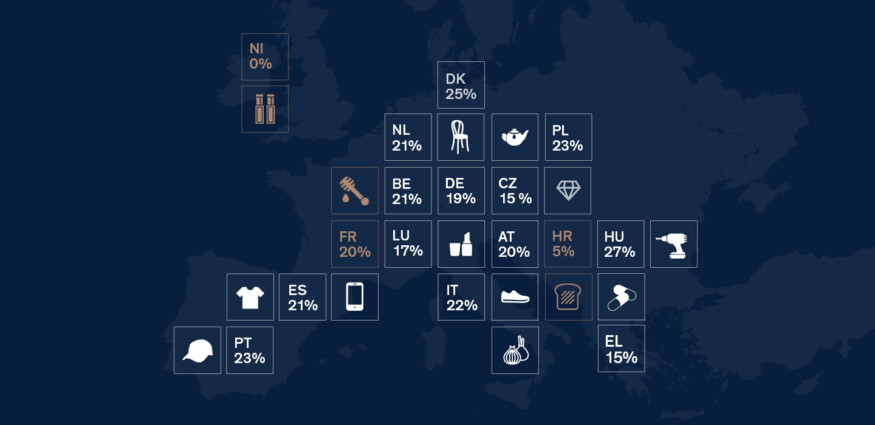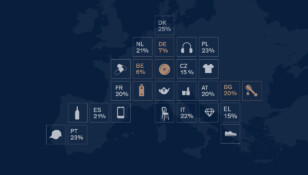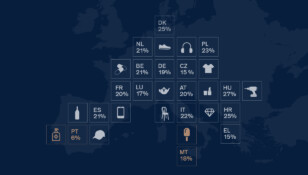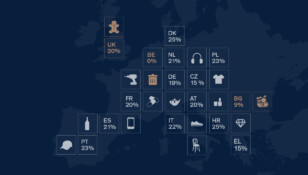On my LinkedIn account, I share weekly information about the regulations on VAT rules, which often seem confusing and hardly comprehensible to end consumers. But it is not only in Germany that some absurd regulations apply; in other EU countries, too, supposedly identical products are taxed differently. In my articles here, I summarise a number of hand-picked gems and present them in more detail.
Chewing gum in Northern Ireland, Italy and Germany
How differently chewing gum can be treated! The Republic of Ireland considers chewing gum to be a product taxed at the standard rate of VAT. However, if it is a nicotine gum, the VAT rate is reduced to 0%. Italy also has their own methods for differentiating chewing gums. Gum sold in premium packaging is subject to the standard VAT rate of 22%. If it is a chewing gum, in ordinary packaging, the buyer benefits from the favorable reduced tax rate of 10%. How does Germany do it? Germany is relaxed about the whole thing: chewing gum is chewing gum and is taxed at a single reduced rate.
Rusk in Ireland and Croatia
The long-lasting baked good is primarily known as a comfort food for upset stomachs, nowadays you can also find rusk on the sweets shelf. How should this be viewed from a VAT perspective? Most countries in the EU reduce rusk. However, when it comes to chocolate-covered rusk, the Republic of Ireland no longer considers this a “classic” rusk and taxes it at the standard VAT rate of 23%. Croatia also makes their own distinction here: classic rusks are taxed at 5 % VAT, but as soon as toppings are added, the standard VAT rate of 25% applies.
Sugar syrup in Ireland, France and Germany
Sugar syrup used for the preparation of beverages is taxed in the Republic of Ireland at the standard rate of VAT of 23%. France is not so strict: only sugar syrup used in the preparation of alcoholic beverages is taxed at the standard VAT rate of 20%. In Germany, the intended use is irrelevant: Sugar syrup is taxed at the reduced VAT rate of 7%.







